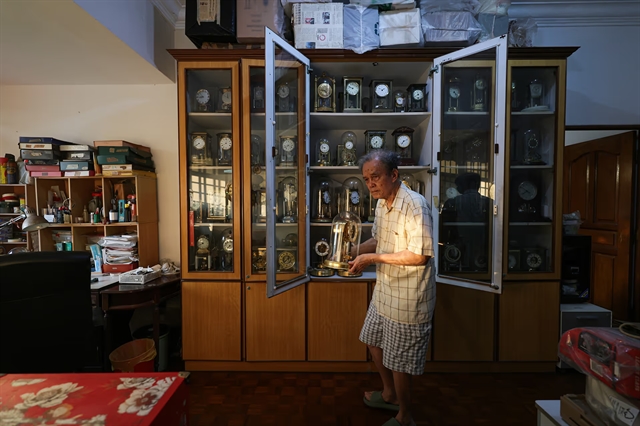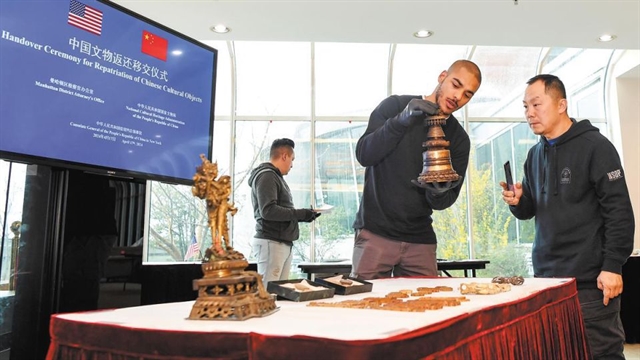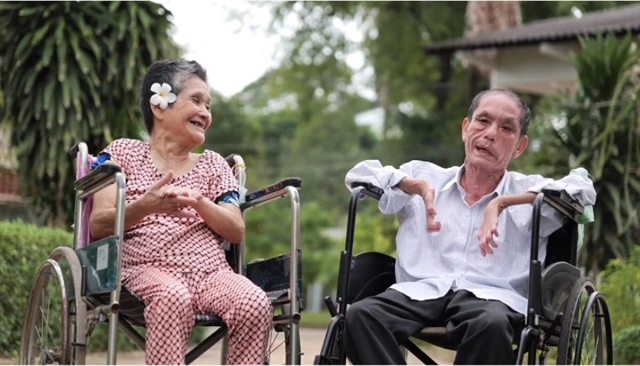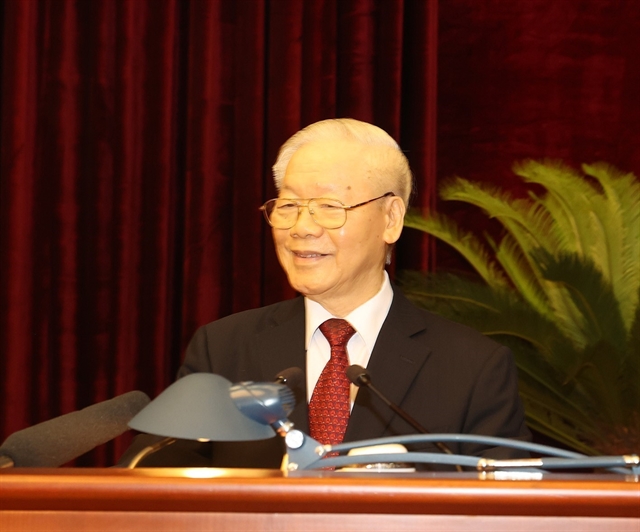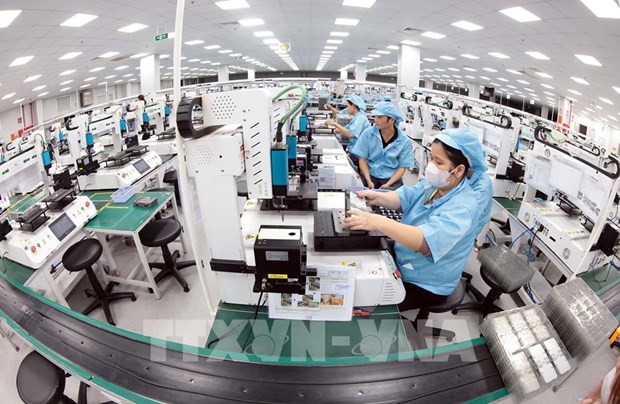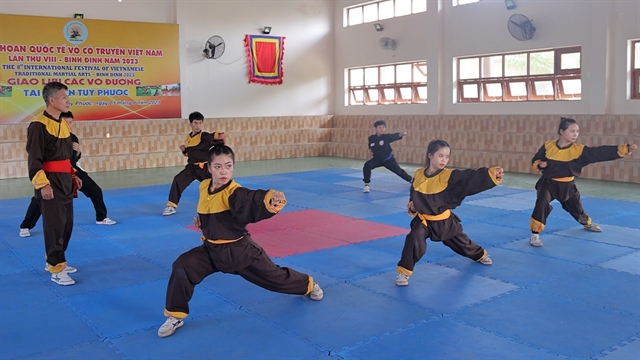.jpg) Environment
Environment
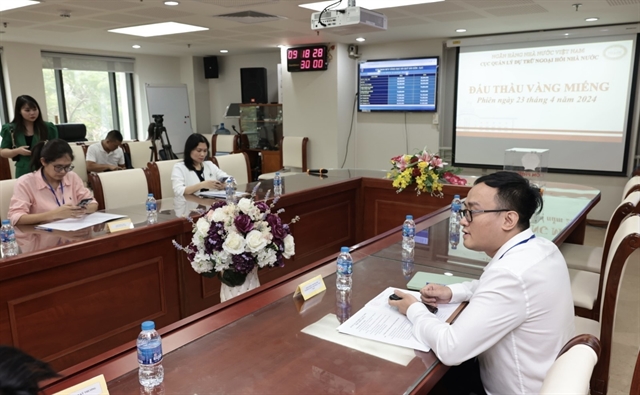
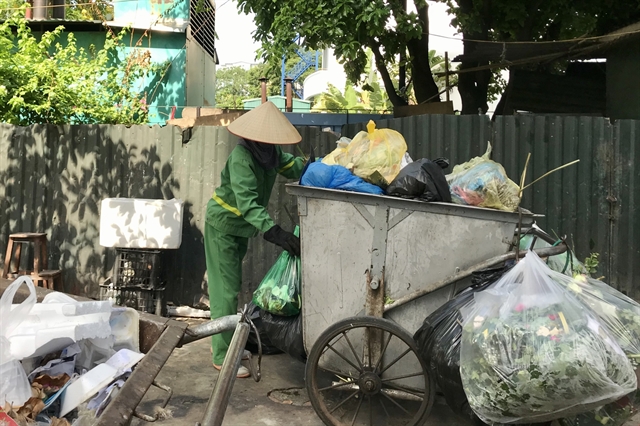
|
| A sanitary worker collects waste along Nguyễn Phong Sắc Street, Hà Nội. —VNA/VNS Photo Kim Thu |
HÀ NỘI — Managerial agencies should soon issue specific guidelines for localities to effectively apply separation of domestic solid waste at source.
This follows the Government's Decree No. 45/2022/NĐ-CP on sanctioning of administrative violations in the field of environment.
The decree says that households and individuals will receive a fine of between VNĐ500,000 and 1 million (US$22-43) from December 31, 2024, if they fail to separate domestic solid waste at source and do not use packaging to hold the domestic solid waste as regulated.
According to environmental expert Hoàng Dương Tùng of Việt Nam Association for Conservation of Nature and Environment, experience of countries that have been successful in separating waste at source is because it must be mandatory.
For example, in China’s Shanghai City, there are old and new residential buildings and low-rise buildings similar to Việt Nam.
They successfully implemented separation of waste at source after the city stipulated that apartment complexes must build a garbage room at the bottom of the complex.
People have to bring their waste to the garbage room on time, if not, the room’s door will not open.
The city also built mobile apps to assist people classify and correctly put waste into each bin according to regulations.
In advanced countries, they build very clean garbage collection points, install cameras and arrange staff to monitor at the points.
From these experiences, changing habits and raising people's awareness would be decisive factors for the separation of domestic waste at source, Tùng said.
Waste separation not only helps to reduce environmental pollution, reduce pressure on landfill area, but also save energy and resources, towards a green and sustainable life.
However, in addition to the responsibility of people in waste separation at source, the responsibility of units to collect, transport and treat waste is also important.
Deputy Director of Việt Nam Environment Administration Nguyễn Thượng Hiền said the People's Committee at provincial level must take full responsibility for solutions and plans of separating waste at source so that people can practise soon.
Currently, the Ministry of Natural Resources and Environment has drafted guidelines on solid waste separation at source and collected comments from localities.
On that basis, the ministry would issue guidelines so localities could make detailed regulations to fit with each locality.
“Our goal is not to impose sanctions but to disseminate and help people see the responsibility of environmental protection,” he said.
He added that environmental protection was not only the responsibility of any agency or organisation but the responsibility of every person in the society.
Statistics of the environmental administration show that the whole country generates more than 60,000 tonnes of domestic waste daily.
The domestic waste in urban areas accounts for 55 per cent while domestic waste in rural areas accounts for 45 per cent.
Only 13 per cent of the waste is incinerated, 16 per cent is processed and about 71 per cent is buried.
In previous years, several large urban areas in Hà Nội, HCM City, Thừa Thiên Huế and Lào Cai already piloted to separate domestic waste at source but failed.
According to Tùng, before 2020, in Hà Nội, Phan Chu Trinh and Nam Thành Công wards had piloted waste separation at source but failed because there was no coordination between the people and the collectors.
Chu Thị Tuyết, deputy director of Cầu Diễn branch of Hà Nội’s Urban Environment Limited Company said that in previous years, some districts of the capital piloted waste separation at source according to 3R (reduce, reuse and recycle) model but failed.
People's habits were difficult to change immediately. That was one of the reasons, she said.
Besides, lack of financial support; lack of synchronisation in technology and processing were also blamed for the situation, she said. — VNS

